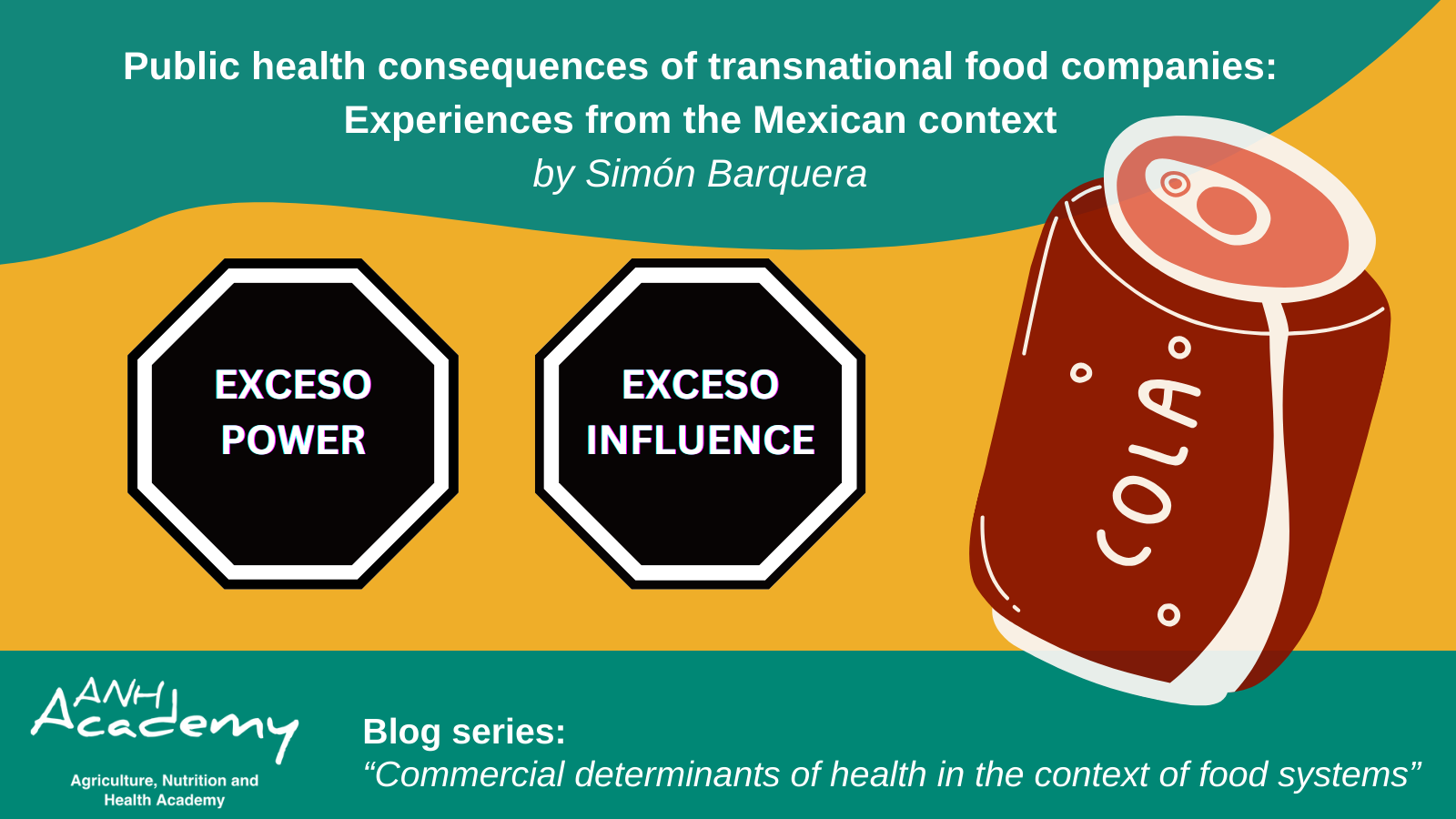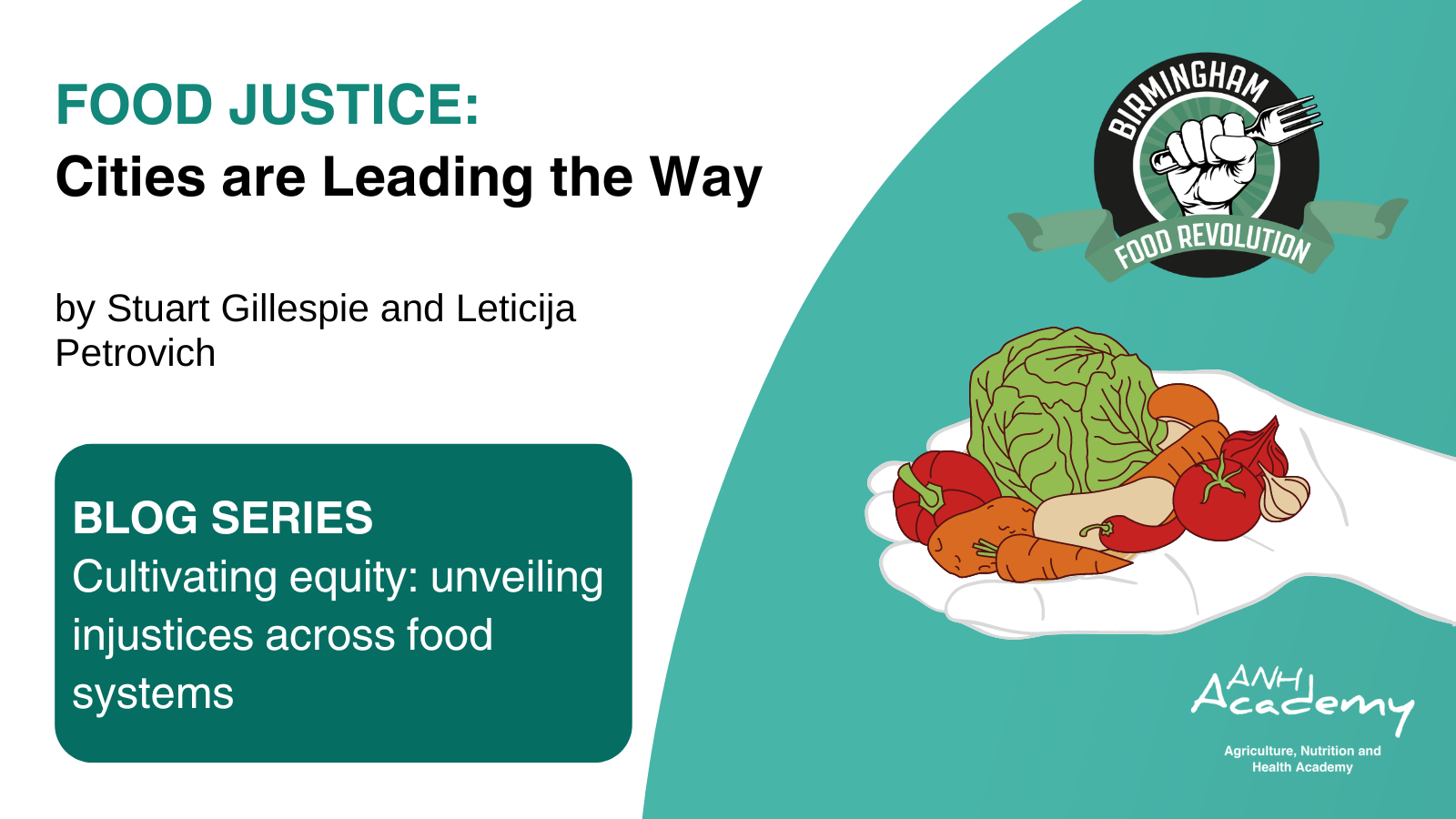
In July 2023, the United Nations hosted the Food Systems Summit +2 Stocktaking Moment (UNFSS+2) in Rome. Many of the world’s largest transnational food corporations (TFCs) that manufacture ultra-processed products participated. In these types of settings, TFCs often claim to want to be “part of the solution.” However, those of us who have participated in efforts to regulate the harmful practises carried out by these companies know that this narrative is not consistent with their actions.
Public health consequences of transnational food companies
Consider the case of Mexico, a country with an obesity, diabetes, and non-communicable chronic disease epidemic in which 40,000 deaths per year are attributed to the consumption of sugary beverages and where water resources are becoming scarce. In this context, TFCs have strongly opposed public health nutrition policies, like taxes on sugar sweetened beverages (SSBs), front-of-pack warning labels, and marketing regulations. They have launched public relations campaigns to build a positive image, supporting social and environmental causes.
When the soda tax was proposed in Mexico, Coca-Cola invested millions to communicate that it would negatively affect the poor, and result in job losses, among other consequences. Even so, the tax was approved (10% or $1 Mexican peso/L), and when evaluation findings were published, a cascade of similar taxes were approved in over 30 countries.

Similarly, warning labels for junk food also faced firm opposition at local and international levels by TFCs. These policies have been critical in moving Mexico from 1st to 6th place among the highest soda consumers in the world, reducing intake from 168 L per capita per year before the tax to 137 L per capita per year. A reduction of 28 litres per capita per year is an impressive result, considering this is a country with more than 126 million inhabitants. Nonetheless, it still leaves us with a very high consumption rate that requires urgent strategies to achieve additional reductions, and it is clear that the main barrier to achieve this complex public health objective will be interference from TFCs.
Recently, in Mexico, Coca-Cola announced a discount for its 3L presentation. The fact that this discount is higher than the cost of the tax confirms what we already knew; the tax was modest and would not damage the economy, impact employment, or affect the impoverished. In fact, Coca-Cola easily bears the cost, which suggests that Mexico needs to impose a larger SSB levy.
At the same time, we have seen Coca-Cola's red trucks swarming the country due to a service that delivers products to households in any quantity, even a single bottle.

These trucks contribute to traffic and air pollution and are covered in publicity, which is mostly directed at children and adolescents. Furthermore, their bottles end up in the ocean and landfills. Coca Cola has been consistently ranked as the world’s worst plastic polluter for years (followed by the largest TFCs). Out of Mexico’s population of 126 million people, 73 million (or 57% of the population) do not have access to a dependable source of safe water, and 55 million (43%) do not have access to household sanitation facilities. Coca Cola exploits water resources, extracting millions of litres every year, which is alarming in a country like Mexico, in which many communities do not have access to water but have massive plants to bottle soda. Clearly, to protect the population from these actions, regulations are needed.
The multifaceted harms incurred by TFCs occur alongside numerous tactics to discredit and delay public health policies like legal challenges, lobbying, policy interference, funding of front groups, and many more strategies. For instance, Colombia is close to implementing a health tax, which includes taxes on SSBs, and once again, soda-producing companies are the main barrier with the same arguments. Their close relationship with governments has been documented in most Latin American countries.
Corporate responsibility and accountability
TFCs and public health have fundamentally different interests and goals. Because of their commercial nature and responsibilities to shareholders, it is unlikely for TFCs to help transform the food system at the expense of their growth and profits. However, we can still design incentives for corporate responsibility and accountability. For example, promoting the development of independent groups to monitor industry interference and benchmark their behaviour. This data could be used to limit UN high-level and national dialogue opportunities for companies that have filed legal or trade demands to stop government public health prevention efforts, as well as those that have demonstrated poor compliance with international commitments and codes, among others. This could be a powerful contribution from the UN to support LMICs undertaking regulatory actions. The ultra-processed food industry (Big food and Big soda) must demonstrate commitment to transforming the food system by avoiding interference in public health matters, particularly in developing countries where the impact of their products is most significant.





